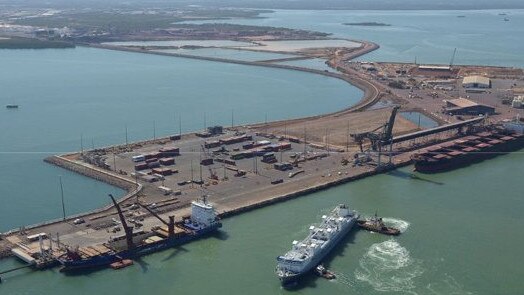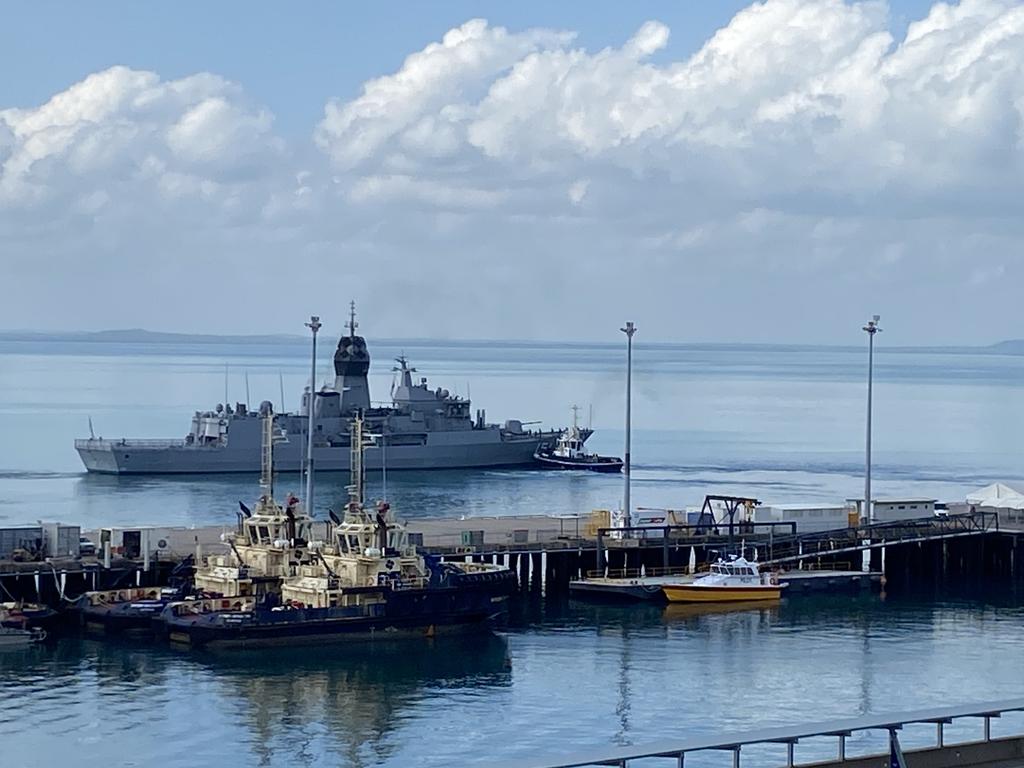
If the federal government does decide to remove the 99-year lease of the Port of Darwin from the Chinese-owned Landbridge company, this will likely cause major new upset in the relationship. Beijing would almost certainly take retaliatory action.
It may be that revoking the lease is nonetheless the right thing to do. But if the lease is sufficiently circumscribed by regulation, it may be better to let it continue, at least for now.
The deal as undertaken in 2015 was legal and passed the regulatory requirements in place then. Therefore it is essential that Landbridge be properly compensated. Australia is not some rackety third world country that expropriates the property rights of lawful foreign investors without compensation.
We have every right to change our policy settings. But it would be wrong to financially penalise a foreign investor that has broken no laws. The case for removing the Chinese interest in the Port of Darwin is strong. The case for leaving it there and managing the situation by tight regulation is also substantial. There may be a middle ground in requiring greater Australian involvement or an Australian partnership.
It is difficult to imagine that the government has commissioned an inquiry into the potential strategic dangers of Chinese control of the Port of Darwin if it didn’t already have a bit of an idea what the inquiry was likely to conclude. Certainly, no such lease would ever be agreed to by Australia today. It was a failure, a bad mistake, by the Defence Department in 2015 to allow the lease to go through without objection.
It was a mistake at the time. It was controversial at the time. It revealed a substantial gap in our national regulatory framework and led to wholesale change in Australia’s legal regime regarding foreign investment. Scott Morrison, as treasurer, swiftly appointed David Irvine, the former head of ASIO, as chairman of the Foreign Investment Review Board in a move to give FIRB a clear national security dimension.
State and territory privatisations, which had previously not gone through FIRB processes, came under the remit of FIRB. Josh Frydenberg as Treasurer introduced significant legislative changes such that foreign investments that had any national security sensitivity were subject to a zero-dollar threshold for review. The Treasurer was given a raft of powers to refuse all kinds of foreign investments on national security grounds. Frydenberg has been conscientious and determined in undertaking this duty and has rejected a number of high-profile proposed Chinese investments.
The Darwin port lease followed by only a couple of years the agreement by Julia Gillard and Barack Obama that there would be a permanent and rising US marine rotation through Darwin for long-term training and exercises, part of greater US-Australia military co-operation across northern Australia.
At the time of the Darwin port lease, senior Americans told me that the Chinese action fitted perfectly a pattern they observed in many parts of the world. Wherever the US sought or agreed to an enhanced military presence in the territory of an ally, the Chinese would seek as big and deep a nearby investment as possible.
The federal government was poorly served by bad Defence Department advice at the time, and moved pretty quickly to change the entire regulatory framework to make sure such a debacle never occurred again. Given that we have lived with it for some years, many folks ask: what has changed to make it more of an issue now?
There are at least five huge changes that justify looking at the situation again:
One, China under Xi Jinping’s leadership has become much more aggressive all over the Indo-Pacific, not least in a series of punitive trade measures against Australia.
Two, Beijing has reduced to almost zero the strategic distinction between a Chinese government-owned enterprise and a privately owned Chinese company. Beijing has changed the direction of Chinese economic development to re-emphasise the leading role of the state, but it has also, explicitly and implicitly, publicly and privately, ensured that every private Chinese company is subservient to Beijing strategic policy and the directions of the Chinese Communist Party. That has unavoidable consequences for how other nations treat investments by non-government Chinese companies.
Three, northern Australia has become more important militarily to Australia and its allies.
Four, we have recognised that critical infrastructure is an area of acute vulnerability for Australia. Five, rightly, states and territories face new limitations on what they can do with foreign governments.
And perhaps one other — we now have a Defence Minister, Peter Dutton, with a bias for action.
The government is legislating to require private operators of critical infrastructure to undertake a range of national security measures. All modern societies are now acutely vulnerable to cyber and other attack on critical infrastructure. Modern life has never been more digital, more integrated, more convenient for the consumer. As a result, it is intensely vulnerable to cyber attack.
There is a growing view that it is better if China is not involved in controlling any of our critical infrastructure. Reducing Chinese investment to a minority stake in critical infrastructure ownership could furnish a kind of halfway house. This is not gratuitous “Cold War thinking” or paranoia on Australia’s part. The way technology and global geostrategic dynamics have evolved dictates this. Would we allow Russia, or Iran, to control any of our critical infrastructure? And there is the simple issue of reciprocity. Would an Australian company be allowed to control any Chinese critical infrastructure?
Having said all this, there is still a case for heavy regulation rather than forced Chinese divestment. The pattern is that Beijing takes actions which we find unacceptable and we then take measured, proportionate steps to stop this. Inevitably this is done publicly in a democracy like Australia. This results in massive reputational damage to China.
This is the case with banning Huawei from our 5G networks, and with refusing to sign up to Belt and Road Initiatives, legislation against foreign interference and other issues. Many Western nations, Britain notably among them, but even Israel, are suddenly worried about how much of their own critical infrastructure they’ve allowed to pass into Chinese ownership. If we end the Port of Darwin lease, Beijing will likely react with extreme vigour. That’s something to bear in mind.
We should never be cowardly in pursuing our national interests, but we don’t necessarily need to pick every fight going.








You think things are bad between Canberra and Beijing now? They can get much worse.